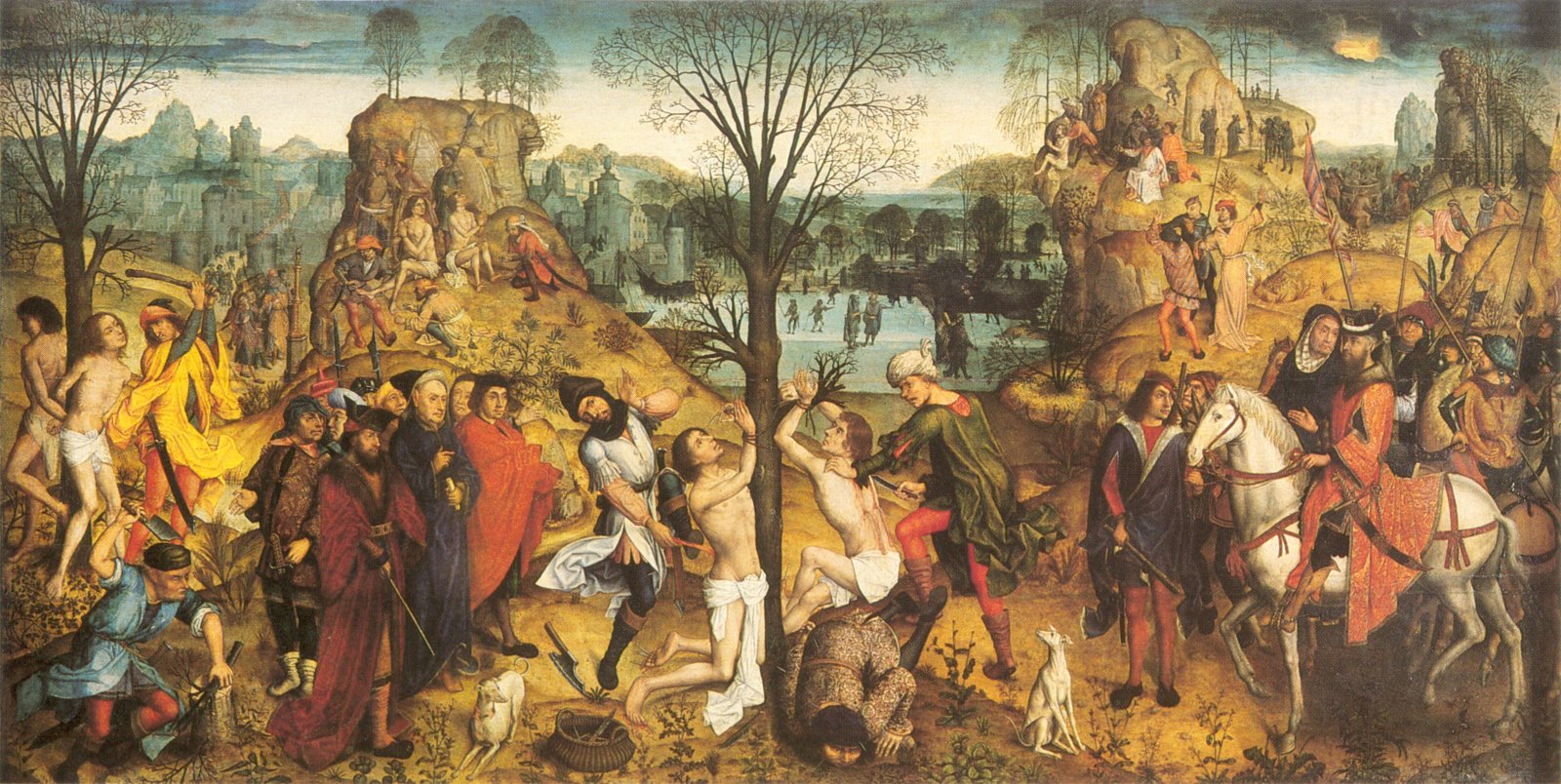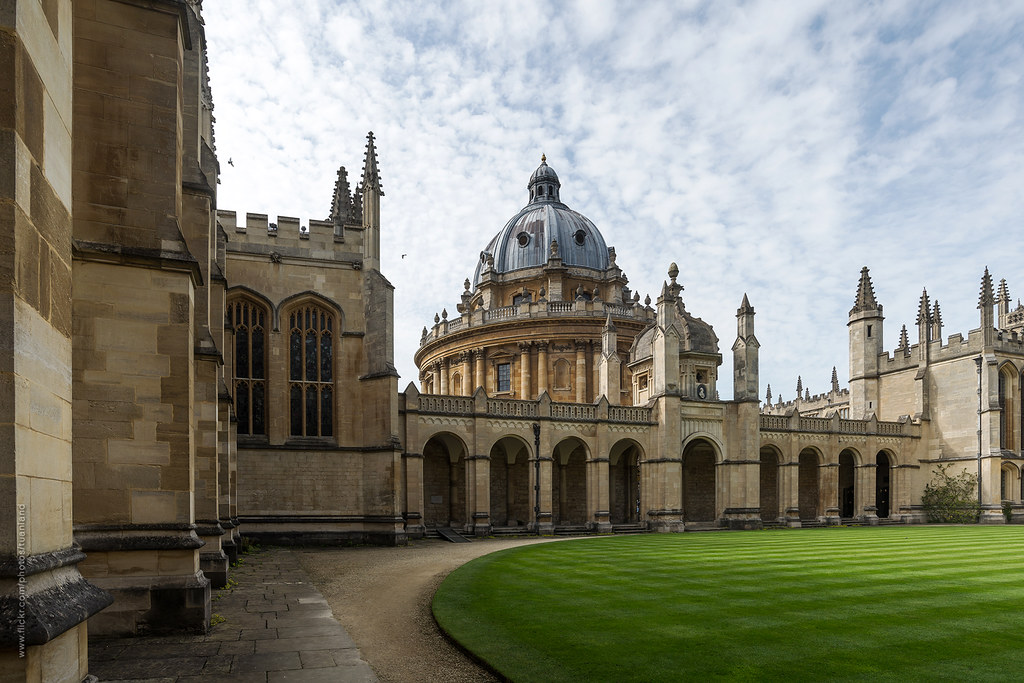
Martyrdom of SS. Crispin and Crispinian
The battle of Agincort, made famous in Shakespeare’s play Henry V, took place on October 25, 1415 the commemoration of St. Crispin. See clips of the famous “Band of brothers” speech with reference to St. Crispin’s Day here.
Born to a noble Roman family in the 3rd century AD, Crispin and his brother Crispinian fled persecution for their faith, ending up at Soissons, where they preached Christianity to the Gauls while working as shoemakers and cobblers at night. They earned enough by their trade to support themselves and also to aid the poor. Their success attracted the ire of the governor of Gaul, who had them tortured and thrown into the river with millstones around their necks. They survived but were beheaded by the Emperor c. 285–286.
The college dedicated to All Souls in Oxford received its foundation charter in 1438 from King Henry VI. It is the only Oxford college to have only graduate students, no undergraduates. It was founded by Henry VI with the religious duty–in addition to academic research–to pray for those who had died at Agincort or in other battles during the Hundred Years War that England fought to control the crown of France. The number of the dead to be prayed for was overwhelming and the religious dedication was broadened to include all the departed, not just those slain in battle with the French. The college marks November 2, All Souls’ Day, as its name’s day; the commemoration of All Souls is 9 days after the commemoration of St. Crispin and his brother, thus including an allusion to the battle fought at Agincort which was the source the college’s original dedication..
All Souls has had many famous students, including Christopher Wren, William Blackstone, William Gladstone, and Lawrence of Arabia. British forces which fought at the Battle of Mons in August 1944 were said to have been protected by the ghosts of archers slain at Agincort.

All Souls College, Oxford with the dome of the Radcliffe Camera behind.
